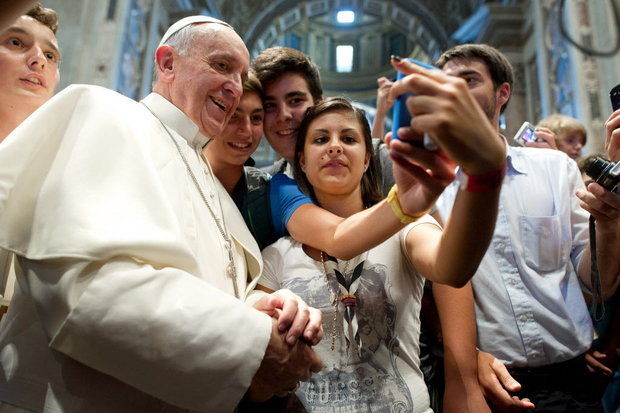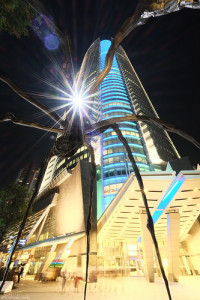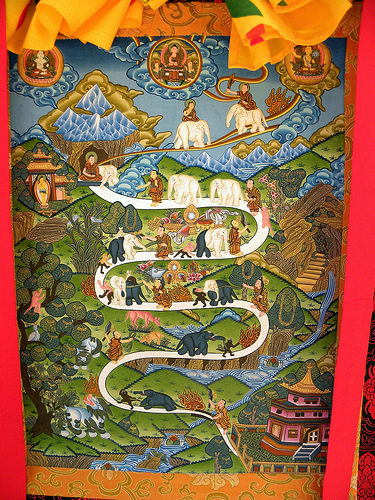 Are you sure you really want to go there?
Are you sure you really want to go there?
Please give a warm welcome to writer B.T. Lowry, who comes to us today with some insight into “My Father and the Sun,” his new story for Third Order.
SE: What inspired you to write “My Father and the Sun?”
BL: This story is about the line between faith and delusion. Some would say that all faith is delusion, while others would say that all people possess some kind of faith, whether material or spiritual. The son in the story believes that the fantastic accounts in his peoples’ scriptures are not just mythology, yet his father’s extreme conviction frightens him.
I’ve been following a particular spiritual path for many years, but I’ve got my reservations. I’ve seen that people can be fanatical and cultish even around something with real merit. At the same time, I think commitment to a path and a practice is important in spiritual life. So this conflict between faithfulness and skepticism inspired “My Father and the Sun.”
SE: What do you see as the role of scripture in your story world? Is it better to be “realistic,” like the mother, or a dreamer like the father?
BL: The father regards scripture as a literal record of events, whereas the mother has a softer and more practical kind of faith. He’s focused on transcending the world, while she’s concerned that everyone here be taken care of. In the end, I think a balance of both is required. It’s a great thing to sincerely hold high ideals, yet we must live also in this world, being mindful not to cause suffering for others.
SE: Your story world has hints that technology was once far more important than it currently is. Tell us a little about the worldbuilding process for your story world and the religion these characters follow.
BL: The story world is largely inspired by the teachings of ancient India, the Vedas. There, a cycle of four ages is described. The cycle begins with purity and spiritual consciousness, and ends with gross materialism. Many say that the achievements of earlier civilizations are far greater than the ones we see now, seeing as we’re further down in the progression. This concept that we are poor heirs of great cultures than our own shows up in many places, including Lord of the Rings. To my knowledge, it’s seen first in the Vedic scriptures.
So the father in this story is trying to access something wonderful that came before. He’s the chief of his tribe, and he wants that they should inherit the great gifts their ancestors have given. Yet so much of the knowledge is lost so he sometimes grasps at straws and seems fanatical to his family and followers.
SE: What’s the best piece of writing advice you’ve ever received?
BL: Get so good they can’t ignore you. Passion is great but easily come by. Hone your craft and make it worthwhile for the reader, not just yourself. It’s advice which tempers the popular saying, ‘Follow your passion.’
SE: How long have you been writing? What inspires your writing in general? Tell me a little about your writing career so far and where you’d like to go.
BL: I’ve been writing since I was wee, but seriously for about five years. I love stories because they represent life. They can be dramatic, engrossing allegories. On a personal level, writing helps me to work through my thoughts and feelings about issues that come up in my life.
My career is modest, just some short story publications here and there, and a self-published novel, Fire from the Overworld (ed. note: get it here!). I’m working on my second book, which has strong spiritual and environmental themes. Like many authors, I’d like for my writing to find its way to those who will most appreciate it, and who will give me feedback to help me improve.
I also work with multimedia and non-fiction, and I find the cross-pollination between these diverse disciplines quite fascinating. I’ve experimented with animating and scoring short stories. It’s time consuming but rewarding work.











